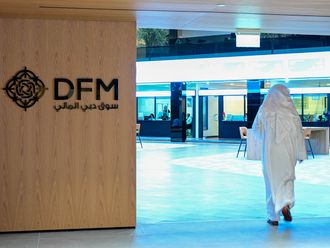Later this month, the UAE marks its first national innovation week. This is yet another purposeful move to ensure that as the nation continues to diversify its economy, digital innovation remain a cornerstone of that evolution.
The week promises to refocus the attention of the government’s innovation value chain, challenging service providers to rethink convention in the pursuit of better. But if the UAE is to realise its smart, connected, digital ambitions, it must do more to foster an ecosystem that integrates entrepreneurship and allows groundbreaking ideas to thrive alongside public services and information.
The guiding principle must be to transform the life experience. In doing so, to empower the ‘digital citizen’ by creating an environment in which every man, woman and schoolchild becomes hyper-connected to their city; able to seamlessly access its services, information, places of interest and one another.
While this digital life requires policymakers, investors and the business community to put the citizen first, it is clear that people are, in the eyes of leadership, central to this nation’s new narrative. Past progress was driven by natural resources and geography, but our future is powered by people.
That’s been the message. And if the Innovation Week announcement demonstrates anything, it’s that the commitment of this country’s leadership to developing the digital infrastructure highly correlates to the value it puts on its population.
There have also been encouraging initiatives from across the UAE’s government services sector. Smart health care is bringing public and private sector health care players closer together, sharing learning’s, records and relevant data and information to transform patient health.
The Dubai Smart City initiative will see more than 100 individual government services — from electricity to transport — go ‘smart’, transforming the way people live, interact, and work, through integrated, personalised, contextualised, behaviorally adaptive characteristics.
In this context, and as a matter of priority, the pursuit of sustainable urban development can no longer overlook integration.
A fully integrated digital agenda will be greater than the sum of its parts because of the degree to which it shifts the urban paradigm. The digital citizen of the 21st century is — and will increasingly be — demanding, but that pressure must be used to fuel progress.
Constituents will expect real-time information about their roads, their services and their city anywhere and everywhere. Citizens will also demand that digitisation saves them time, saves them money, learns their preferences and gives them direct and tangential choice.
But it’s not only about lifestyle and social benefits.
Digital life will also transform business. The way businesses, goods and services win new customers and drive growth is being transformed by big data and data analytics. Seizing this opportunity requires businesses to navigate the challenges of cyber security, privacy, demanding customer expectations and disruptive competitors.
The industrial order, still reflecting the last millennium’s boundaries, is converging: a smartphone maker will lead in financial transactions, while a web-based merchant overtakes cable providers and a health care provider sees new revenue from gaming go head-to-head with traditional streams.
Businesses that succeed in a connected society will sense customer sentiment early, create demand where it does not exist, and creatively combine current technologies to deliver innovative products. They must be afforded a place in the smart city programme, but those who move quickly will define their role, relevance, and impact in our new society.
This is a nation brimming with innovative thinkers. Brave, tenacious, committed, optimistic risk takers. People who think differently and whose natural inclination is to challenge convention and reimagine the future.
We must empower them to contribute by putting them at the heart of the innovation agenda, because the digital life we seek will remain out of sight without their ingenuity, clarity and acumen. Private sector involvement must be total and absolute.
The real opportunity is in a future where public government services do not compete against one another, but interconnect with — and complement — each other; a future, where technologists, regulators, investors and academics share a common ambition.
And a future where an open, accessible platform ensures all spheres of digitalisation converge to accelerate the future benefits of urban life.
Over the last 15 years the UAE has emerged as a regional pioneer of progress, and a nation recognised for pushing the conventional boundaries of modern civilisation. But there is so much more to be achieved.
Only by putting the people at the core of our ideas can we continue to successfully reimagine, reinvent and innovate.
The writer is Executive Vice-President and Managing Director of Booz Allen Hamilton MENA.











